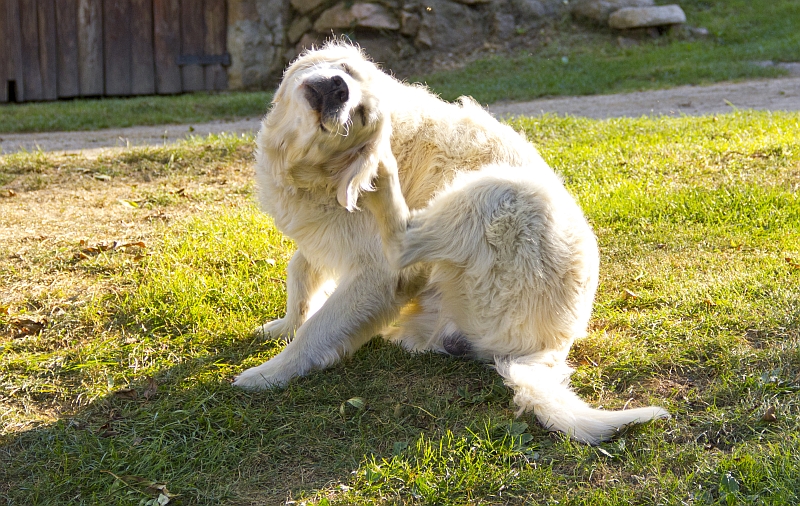When we think of a pet infected with parasites, often worms or ticks come to mind. While these two are the most common kinds of pests that feed on and breed through pets, there are actually a whole host of both internal and external parasites. As pet parents, one of our main priorities is looking out for the health and well-being of our animals. Find out what kinds of parasites might be a threat to your dog or cat, and the best ways to keep your animal free from the unwanted guests.
Internal Parasites
Internal parasites are those that use the dog or cat as a host to reproduce and grow from within. These can lodge themselves in the arteries, organs, intestines, etc., and are often difficult to detect at first. These may be ingested accidentally through water or waste, or through foraging where larvae of the parasites might be growing. They also can be caught through a pet’s bloodstream via mosquito bite, burrowing worms, or even through young animals ingesting the milk of their infected mother. Here are the main internal parasites to be wary of:
- Hookworms
- Roundworms
- Tapeworms
- Threadworms
- Whipworms
- Heartworms
- Eyeworms
- Spirocerca
External Parasites
External parasites are often passed from one animal to another, or caught from normal activities outdoors such as walking or hiking. Ticks, chiggers and other parasitic bugs can fall from trees, or attach themselves to a dog’s fur from long grasses, etc. Fleas and mites are often shared between pets whose are in close contact with them, causing their coats to touch. Here are some of the main external parasites to be aware of:
- Ticks
- Fleas
- Ear mites
- Lice
- Chiggers
- Nasal Mites
Sarcoptic Mange
Staying clean: Parasites are a good reminder that sticking to the rules of simple hygiene can make an enormous difference to your pet. After going on walks, check their coats for ticks. Keep your backyard free from waste, watch to make sure your pet doesn’t give too much attention to another animal’s feces, and and wipe down his paws with antibacterial wipes after you’ve been to a busy field or a dog park. Wash your pet regularly, using anti-tick and flea shampoo, and snapping on a parasite collar from time to time. Brush your dog or cat’s teeth regularly to keep their organs healthy and strong. Feed them a balanced and healthy diet, and don’t skip annual physicals or checkups at the vet. If you see any changes in your pet’s behavior, diet, appetite, or in the appearance of their waste, be sure to talk to your vet and have them examined for any potential parasite.

